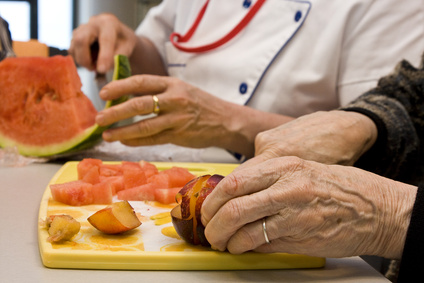Osteoarthritis (OA) is a chronic condition affecting millions of Canadian seniors, causing joint pain, stiffness, and reduced mobility. While medications and physical therapy play a key role in managing symptoms, diet is an often overlooked but powerful tool in reducing inflammation and supporting joint health. For seniors living in retirement homes, having nutritionally balanced meals tailored to osteoarthritis management can significantly improve mobility, reduce pain, and enhance overall well-being. This article explores how diet impacts osteoarthritis and how retirement homes in Canada help seniors maintain a joint-friendly lifestyle through proper nutrition.
 How Diet Affects Osteoarthritis
How Diet Affects OsteoarthritisThe foods we eat directly influence inflammation levels in the body. Certain nutrients help reduce inflammation, strengthen bones, and protect cartilage, while others can exacerbate joint pain and stiffness. A well-planned diet can:
Ask questions regarding retirement homes to our experts
Many retirement homes and assisted living facilities in Canada now provide arthritis-friendly meal plans designed by nutritionists and dietitians. These meal plans focus on anti-inflammatory foods, portion control, and joint health support.
Personalized Meal Plans
Joint-Supporting Ingredients in Daily Meals
Weight Management Support
Hydration and Bone Health
| Best Foods for Osteoarthritis | Benefits for Joint Health | Foods to Avoid |
|---|---|---|
| Fatty Fish (Salmon, Sardines) | Rich in Omega-3, reduces joint inflammation | Fried Foods (French fries, chips) - Increases inflammation |
| Leafy Greens (Spinach, Kale) | High in antioxidants, protects cartilage | Processed Meats (Sausages, Bacon) - Contains inflammatory compounds |
| Nuts and Seeds (Almonds, Walnuts, Flaxseeds) | Provides healthy fats for joint lubrication | Refined Carbs (White Bread, Pastries) - Spikes blood sugar, increases inflammation |
| Turmeric and Ginger | Powerful anti-inflammatory spices | Excess Red Meat (Beef, Pork) - High in saturated fats, worsens joint pain |
| Dairy (Milk, Cheese, Yogurt) | Rich in calcium and vitamin D, strengthens bones | Soft Drinks and Sugary Beverages - Contributes to inflammation |
A balanced diet rich in anti-inflammatory foods can help reduce joint pain, improve mobility, and slow cartilage deterioration in seniors with osteoarthritis.
Yes, many Canadian retirement homes provide customized meal plans designed by dietitians to support joint health and reduce inflammation.
Seniors should limit processed foods, fried foods, refined carbs, and sugary drinks, as they increase inflammation and worsen joint pain.
Yes, portion-controlled meals and balanced nutrition plans help seniors maintain a healthy weight, reducing excess strain on joints.
Water, herbal teas, green tea, and fortified milk are excellent choices to reduce inflammation and support cartilage health.
Many retirement homes offer hydrotherapy, massage therapy, and physiotherapy alongside specialized diets to manage arthritis symptoms.
Look for facilities with on-site dietitians, arthritis-focused meal plans, and medical support.
A well-balanced diet is a crucial component of managing osteoarthritis symptoms, and retirement homes in Canada are increasingly providing nutrition plans tailored to joint health. With personalized meal plans, anti-inflammatory ingredients, and expert dietitian support, seniors can enjoy reduced pain, improved mobility, and a better quality of life.
If you or a loved one is considering a retirement home that prioritizes osteoarthritis care, be sure to choose a facility that offers dietary support, accessible medical care, and wellness programs.
Don't hesitate to contact us at 343 309 5289 or online. We can help you choose the right establishment for you and assist you in your search.

Find a suitable senior residence